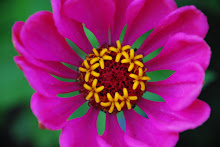For several years I have taught gardening classes about companion planting. Companion planting is one of my absolute favorite subjects. Companion planting with annual flowers, perennials, herbs and natives is an awesome way to increase biodiversity in your garden and increase the health & productivity of your edible garden. Plus biodiverse gardens full of companion planted veggies, fruit, herbs and flowers are just beautiful!


Companion planting is a technique based on a long history of observations of the interaction between plants in the garden. Certain combinations of plants can add to, or detract, from the abundance and health of edibles in your garden by altering the soil, attracting or repelling insects or creating helpful microclimate. Companion planting has been used by gardeners for centuries. Some plant relationships have been scientifically proven, while others have been developed by trial and error over hundreds of years.


Some benefits of companion planting:
•
Fragrance: some plants have a strong fragrance that confuses or detracts pest insects from the crop they are looking for. Some strongly scented plants are: basil, marigolds, thyme, garlic, onions and chives.
•
Efficient use of resources: group vegetables together that have similar needs for fertilization, water, sun, and soil pH.
•
Providing physical support and space: Plant climbing plants with tall plants for support. For example: tall plants like sunflowers and corn can support climbing plants like pole beans and peas. The traditional “3 Sisters” method beautifully incorporates this kind of companion planting: tall corn for support, beans and peas climb the corn, and squash or pumpkins sprawl on the ground space below. Another example is planting leafy greens at the base of taller plants which will provide shade during the hot summer months. In my garden I rotate rows of greens with rows of roots to utilize above and below ground space.
•
Culinary use: In my garden I like to group things together that I cook together. For example: cucumbers with dill for pickling, beans with summer savory, tomatoes with basil, oregano & garlic for marinara sauce, and lettuce with edible flowers for salads.
•
Increasing biodiversity: planting a wide variety of plants together is more consistent with the way environments would naturally grow. Mono-cropping invites pests and diseases and causes a reliance on chemical herbicides and fungicides. With a biodiverse garden you will attract more beneficial bugs and pests will have a harder time locating the crop they are looking for.
•
Attract and maintain beneficial bug populations: We want bugs in our garden, lots of them are gardener’s helpers. Some beneficial bugs are pollinators, predators and composters. We need pollinators in our gardens for growing plants with separate male and female flowers such as: winter squash, pumpkins, zucchini, and summer squash. Some pollinators are: butterflies, bees, wasps, flies & beetles. We need predators in our gardens to control pest populations. Some predators are: ladybugs, lacewings, praying mantis, assassin bugs, ambush bugs, soldier bugs, tiger beetles, dragonflies and spiders. We need composters in our gardens to assist in breaking down organic matter and provide us with nutritious compost. Some composters are worms and pill bugs.

These are just some of the ways I incorporate companion planting into my garden.
• I grow annual flowers and herbs right in the raised beds with veggies. I place taller annual flowers & herbs like sunflowers, cosmos and dill at the back/northside of the beds so they don’t shade out smaller plants. I use midsized mounding annual flowers & herbs like calendula, alyssum, marigolds and german chamomile throughout around and in between veggies. Trailing annual flowers like nasturtium and petunia fit great at the edge of raised beds where they can hang over the sides.
• I keep a small bed of perennial flowers right next to my raised bed edible garden. I fill this bed with perennial flowers for attracting beneficial bugs as well as providing me with cut flowers for designing arrangements. Each spring I sow seeds for annual flowers to fill in around the perennials. Many of these flowers often self-sow. Some of my favorite cutting flowers from this perennial flower bed are dahlias, lilies, black eyed susan and annual sunflowers & amaranth.
• I can never have too many containers in my garden. Once the raised beds and in-ground beds are packed full I pot up dozens of pots and place them all around the garden.
 Jolie’s favorite plants for attracting beneficial bugs to the vegetable garden
Annuals
Jolie’s favorite plants for attracting beneficial bugs to the vegetable garden
Annuals: alyssum, calendula, cleome, cosmos, nasturtiums, petunias, sunflower, and zinnia.



 Herbs
Herbs: borage, catnip, cilantro, german chamomile, dill, fennel, lavender, parsley, lemon balm, mint, oregano, rosemary, sage.
A word of caution about borage & mints: Mint and lemon balm spread rapidly with underground runners and is best contained in a pot. Borage drops its seeds and is a vigorous spreader around your yard. It took over my raised beds & lawn in one season. But, the bees love it.
 Perennials
Perennials: asclepias, aster, achillea, agastache, coreopsis, echinacea, gaillardia, leucanthemum, monarda, nepeta, rudebekia, scabiosa, and salvia.

If you are interested in learning more, I am teaching a gardening workshop: Companion Planting for Bees, Butterflies & Beneficials on Sunday 17th at 11:30am at Springwater Studio in Gresham.
To register for this and other gardening workshops please visit the Springwater Studio website.
Happy planting!
Jolie







































